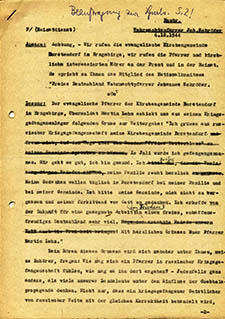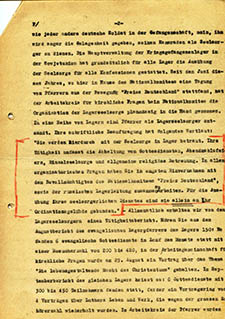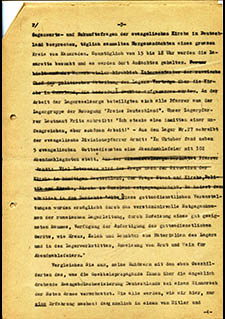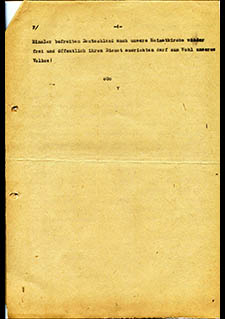Camp Ministry
The Soviets had promised the clergy an expansion of their ministry in the run-up to the 10th General Assembly of the NKFD. This promise presumably played a major role in other theologians’ decision to support the NKFD. Worship services and ministry had been possible from time to time beforehand but hinged wholly on the respective camp commandants. At the insistent pleading of the pastors Kayser and Schröder, the main camp administration basically allowed ministry to officers and soldiers of other ranks in every prisoner of war camp as of winter of 1943.
In June of 1944, the Council for Church Affairs was tasked with organizing ministry in a larger number of prisoner of war camps. This made it possible to minister in camps that had previously been without chaplains. The council gave the theologians in charge of camp ministry written confirmation that authorized them to conduct worship and communion services in the prisoner of war camps and to minister to individuals. The council received progress reports from the camp chaplains every month. For the most part, these reports were positive in tenor but the ministry situation continued to differ from camp to camp.
Some of the NKFD’s authorized representatives for camp ministry formed councils in their camps, which were attached to the camps’ “antifascists” (Antifa committees) and conducted discussions about ecclesio-political and political issues.
Source / title
- © Christiane Godt-Schröder




